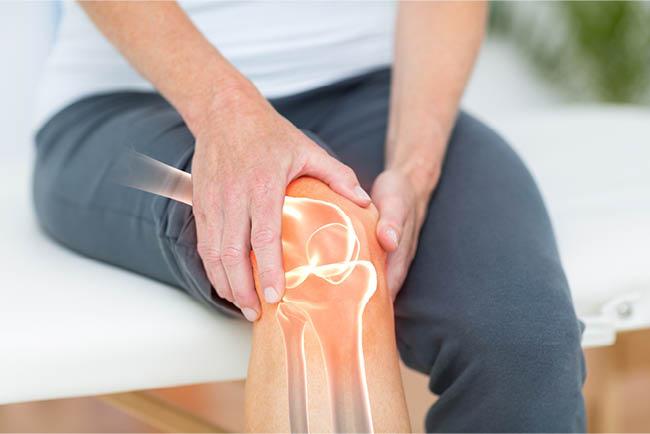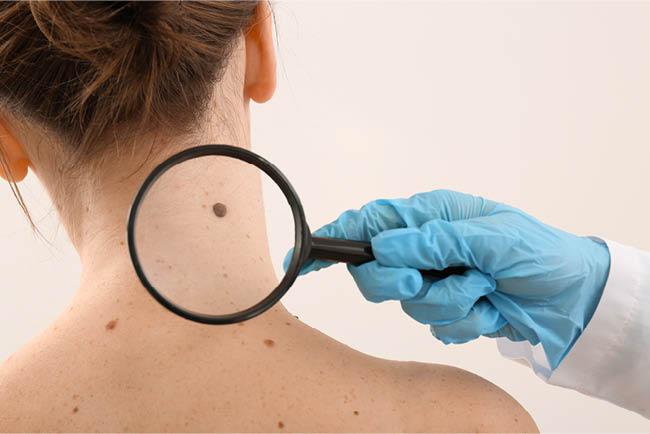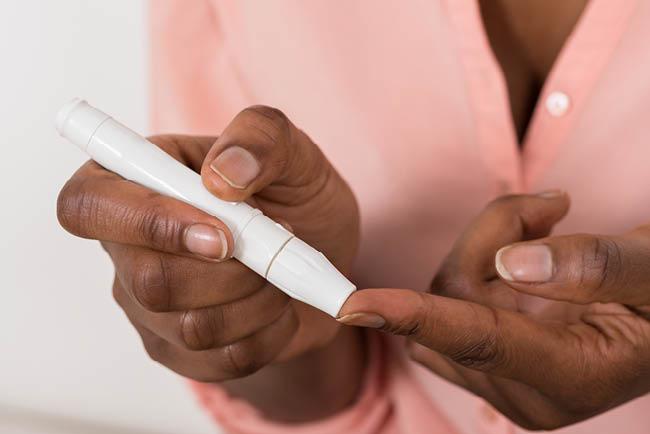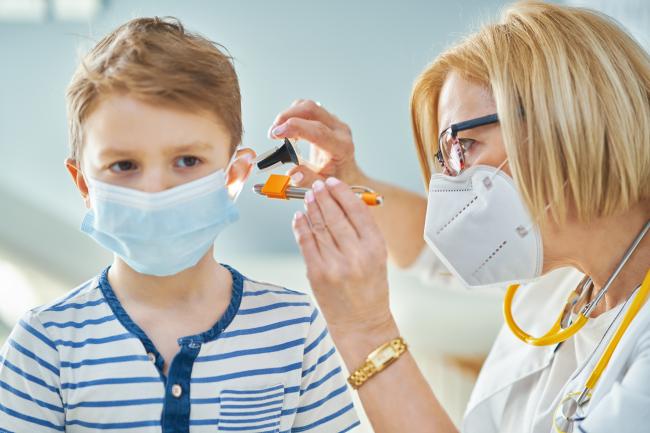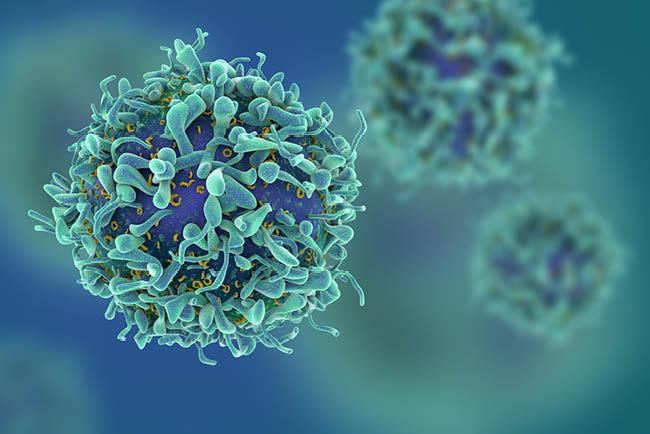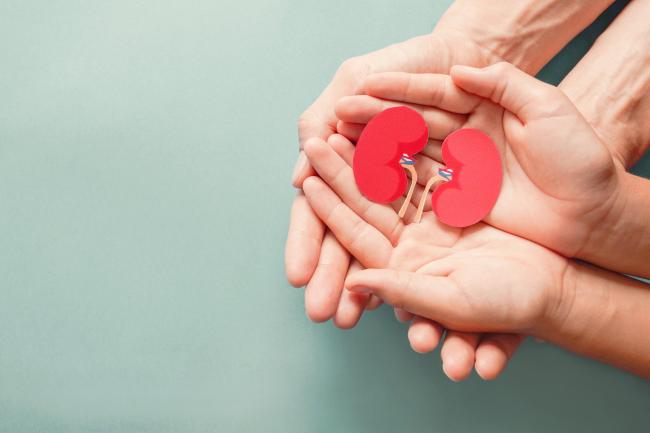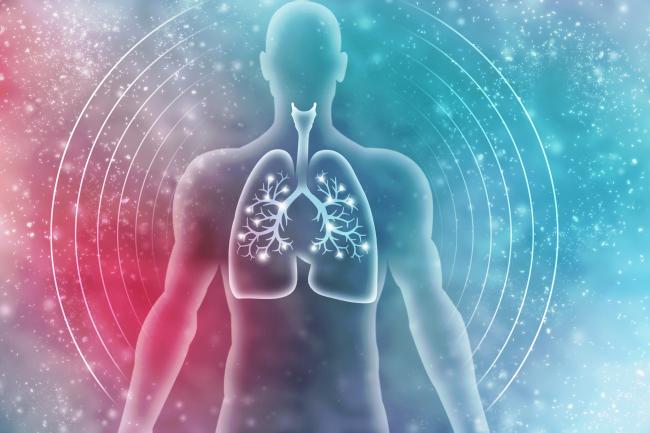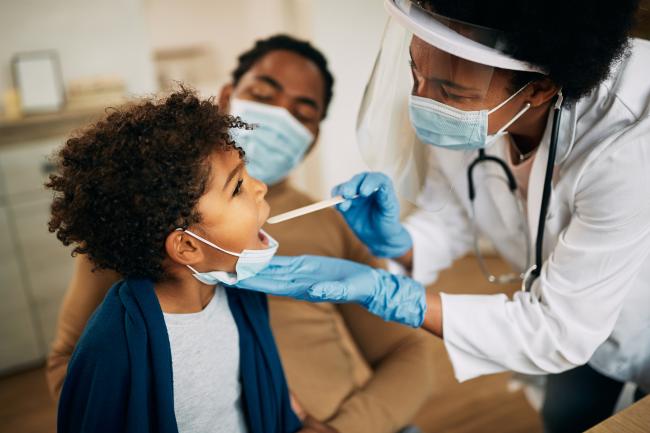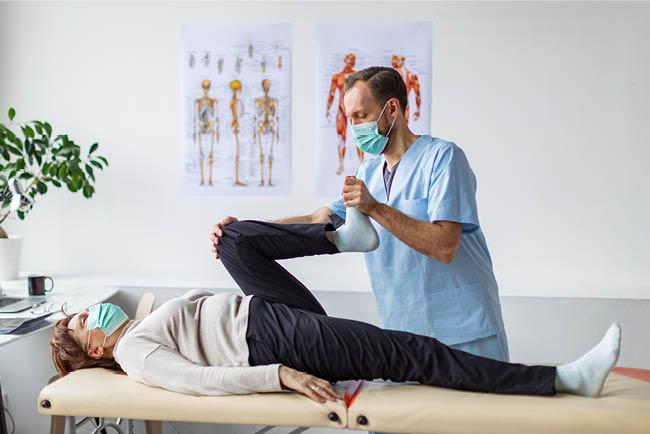Search Studies
Research studies are looking for volunteers just like you. Both healthy volunteers and participants with specific health conditions are needed to help answer important questions impacting the health of our friends and family. Join us to improve the health of others.
-
Smartphone-based HIV-specific Smoking Cessation Study
Official Title AMC-111 Impact of Behavior Modification Interventions and Lung Cancer Screening on Smoking Cessation in People Living With HIV: A Feasibility StudyPurpose
This clinical trial evaluates the usefulness of using a smartphone-based HIV-specific smoking cessation intervention at the time of lung cancer screening in helping people living with HIV quit smoking. Positively Smoke Free - Mobile may help patients with HIV quit smoking.
In this study, you will have lung cancer screening performed via a CT scan. You will also be enrolled into a self-guided smartphone-based HIV-specific smoking cessation intervention called “Positively Smoke Free - Mobile” lasting 42 days. After starting the intervention, you will be evaluated at 3, 6, and 12 months.
Could this study be right for you?
Must have at least a 20 pack-year history of smoking (a way to measure how much a person has smoked over time, 1 pack-year is a pack per day for a year or 2 packs of cigarettes for half a year, etc.)
Must have not had a CT scan in the past 12 months
HIV positive, and must be receiving antiretroviral therapy and have a CD4 count of at least 200cells/uL within 6 months of enrolling in the study
Able to understand and provide informed consent
Possess a smart phone that can browse the web
Not receiving any other smoking cessation interventions currently or within the prior 30 days
Female volunteers cannot be pregnant, lactating, or breast-feeding
Age Range
45 - 80 years -
Study to identify eligible patients with Parkinson's Disease for clinical trial in cell transplant of dopamine producing neurons
Official Title A Screening Study Assessing Eligibility of Idiopathic Parkinson’s Disease Patients for Potential Future Intraputamenal Transplant Study with a Dopaminergic Precursor ProductPurpose
The purpose of this screening study is to identify eligible patients with Parkinson's Disease for a clinical trial in cell transplantation to a part of the brain called the putamen. The cell transplantation will be of precursors of dopamine producing neurons (the precursors are intended to turn into mature neurons).
In the screening study patients will be evaluated for the following:
- To characterize your Parkinson's Disease symptoms using information from clinical assessments, genetic tests, blood tests, and imaging of the brain.
- Determine if you qualify for a future Phase 1b/2a transplant study to the putamen
- To collect imaging information about dopamine function and brain function in Parkinson's Disease using 2 scans called a F-DOPA PET and a FDG PET
- To study your blood and urine for biomarkers
Could this study be right for you?
Inclusion Criteria (summarized)
- Diagnosis of Idiopathic Parkinson’s Disease
- Currently using anti-parkinsonian medications and experience some benefits from the medications.
- Both sides of your body experience symptoms of Parkinson's Disease
- Not currently pregnant or planning to get pregnant
- Willing and able to avoid deep brain stimulation (DBS) during the course of the study and for at least 18 months after transplantation should the study participant be eligible for the interventional phase
- Willing and able to avoid treatment with continuous apomorphine IV infusions or Duodopa® during the course of the study
Exclusion Criteria (summarized)
- Diagnosis of secondary or atypical parkinsonism.
- Previous infusion therapy or surgery for PD.
- Severe dyskinesia (mild to moderate levadopa induced dyskinesia is acceptable)
- Clinically significant hallucinations requiring antipsychotic use in the previous 6 months.
- Use of dopamine antagonists within 90 days of screening.
- Currently active major depression that is not well controlled
- History of any cancer (other than treated basal or squamous cell carcinoma) within past 3 years
- Current participation in another investigational clinical trial and/or receipt of any investigational medication within 90 days prior to screening.
- Known PD gene mutation or causative variant as informed by genetic testing.
- Unable to have a MRI
Age Range
45 - 75 years -
DAANCE FOR CHEMOTHERAPY-INDUCED NEUROPATHY (DAANCE)
Official Title Dance-Based Avenues to Advance Nonpharmacologic Treatment of Chemotherapy Effects (DAANCE): A Multi-Center TrialPurpose
This study will teach tango dance to try to help with neuropathy symptoms. Tango dancing classes will take place for 2 times a week for 8 weeks. You will be asked about symptoms such as numbness, tingling, fatigue, pain, and balance. There is a 6 month follow up period where we will ask you to tell us about your symptoms via an app.
Could this study be right for you?
- Breast cancer survivors stage I-IV
- Exposure to chemotherapy with the last exposure being at least 3 months prior to study participation
- Must be ambulatory
Age Range
40 years and up -
A Study to Evaluate Remibrutinib in Adults with Moderate to Severe Hidradenitis Suppurativa
Official Title A randomized, double-blind, double-dummy, placebo-controlled, multicenter, Phase 3 study assessing the efficacy, safety, and tolerability of 2 doses of remibrutinib over a 68-week treatment period in adult patients with moderate to severe hidradenitis suppurativaPurpose
This study is being done to see how well remibrutinib works for people who have hidradenitis suppurativa
Could this study be right for you?
- Subject must have a diagnosis of moderate to severe hidradenitis suppurativa (HS) for at least 6 months with lesions in 2 distinct areas
- Subject must be in good general health with no history of tuberculosis, HIV, or hepatitis B or C
- Subject must have no recent history (within 6 months) of significant medical conditions such as a heart attack or stroke
- Subject must not be taking anticoagulant medication (ex. warfarin) or dual anti-platelet therapy (ex. acetylsalicylic acid + clopidogrel)
Age Range
18 years and up -
Study of a Wearable Device to Help People with Spinal Cord Injuries Regain Control of Hand Movements
Official Title A User-Friendly, Non-Invasive Neuro-Orthosis That Restores Volitionally Controlled Grasp Functions for SCI Survivors with TetraplegiaPurpose
This study is testing a new wearable device designed to help people with spinal cord injuries regain movement and control in their hands. The device uses electrical signals from the muscles to assist with hand movements. We are exploring whether using this device can improve hand function, support long-term recovery, and help track progress over time. The results will guide future development and testing to bring this technology into everyday rehabilitation and home use.
This is a 20 week study where you will complete a 12-week rehabilitation training protocol (3x/week, 1-2 hours/session) with our study therapist. Additionally, you will participate in six sessions where clinical assessments will be conducted to measure your arm/hand function.
Could this study be right for you?
- Cervical spinal cord injury sustained at least 1 year ago
- Unable to grasp and manipulate objects to allow independent performance of activities of daily living
- Able to actively move your shoulder and elbow
- Not currently active in upper extremity rehabilitation
Age Range
22 years and up -
The Ice E-Cigarette Study
Official Title The ICE Study: Perceptions of E-Cigarettes and Synthetic Cooling AgentsPurpose
This study will examine the influence of synthetic cooling agents in e-cigarettes on vaping behavior and aims to find out how adding artificial cooling ingredients affects how people use a product and their exposure to harmful chemicals.
Your participation in this study will last for 4 sessions, 1 session per week for 4 weeks.
Could this study be right for you?
- Must be a current e-cigarette user
- Must be willing to attend four in-person study sessions
Age Range
21 - 29 years -
Visual Search Strategy in Autistic Adults
Official Title Visual Search Strategy in Neurodivergent PopulationsPurpose
The NeuroLab is looking at differences in how Autistic and Neurotypical adults pay attention to their surrounding environment. Previous studies have found that autistic individuals are often better at focusing on visual cues—things they see in their environment—and this study wants to understand what causes that difference. To do so, participants will come in for 2-3 hours and complete computer games, paper and pencil games, and surveys. The goal is to learn how attention works for different people and why Autistic individuals might focus on visual cues differently.
Could this study be right for you?
- Have a medical diagnosis of Autism
- Have normal or corrected color vision
- Can communicate verbally
Age Range
18 - 40 years -
A Long-term, observational study on the safety of TZIELD for patients with Stage 2, Type 1 Diabetes
Official Title AN OBSERVATIONAL, LONG-TERM SAFETY STUDY OF TZIELD® (TEPLIZUMAB-MZWV) IN PATIENTS WITH STAGE 2 TYPE 1 DIABETESPurpose
The objective of the study is to test the safety and efficacy of TZIELD over the course of 10 years in patients with Stage 2, Type 1 Diabetes, as well as the prevention of Stage 3, Type 1 Diabetes.
Could this study be right for you?
Inclusion Criteria:
TZIELD-Exposed Cohort
1. Patients in the US diagnosed with Stage 2 T1D who are planned to initiate TZIELD treatment according to the currently approved label or who have initiated TZIELD treatment within 6 months prior to enrollment:
− Day 1: 65 μg/m²
− Day 2: 125 μg/m²
− Day 3: 250 μg/m²
− Day 4: 500 μg/m²
− Days 5 through 14: 1,030 μg/m² per day
− Cumulative dose is approximately 11,240 μg/m²2. Appropriate written informed consent/assent as applicable for the age of the patient
TZIELD-Unexposed Cohort
1. Patients in the US diagnosed with Stage 2 T1D but who are not treated with TZIELD
2. Appropriate written informed consent/assent as applicable for the age of the patient
Exclusion Criteria:
1. Patients who initiated TZIELD treatment more than 6 months prior to enrollment
2. Patients who had participated in a previous clinical trial for TZIELD
3. Patients in an ongoing clinical trial of an investigational product or who had ended participation within 6 months prior to study enrollment; patients participating in other observational studies may be enrolled.Age Range
18 - 70 years -
A Study Evaluating Efficacy and Safety of Armour Thyroid Treatment Compared to Synthetic T4 in Patients with Primary Hypothyroidism
Official Title A Phase 2/3 multicenter, double blinded, randomized, dose-conversion, active control study examining the efficacy and safety of Armour Thyroid compared to synthetic T4 for the treatment of adults with primary hypothyroidismPurpose
The purpose of this study is to evaluate if Armour Thyroid is safe and effective in the treatment of hypothyroidism.
You will participate in this study for up to 90 weeks. The study will be conducted in 3 treatment periods plus a Screening and Follow-up period: • Screening period (up to 28 days)– the dose of Armour Thyroid will be adjusted as needed to ensure your Hypothyroidism is well controlled • Follow-up period (approximately 35 days following the last dose of study drug)
Could this study be right for you?
-
Were diagnosed with hypothyroidism at least 12 months ago
-
Have been on a stable dose of T4 (like levothyroxine or Synthroid) for at least 3 months
-
Have a recent TSH level between 0.45–4.12 mIU/L
-
Are between BMI 18 and 40
-
Are not pregnant or breastfeeding and use birth control if needed
-
Are not allergic to thyroid meds or pork products
-
Have no recent drug/alcohol abuse or severe liver/kidney disease
-
Are not in another clinical trial
-
Take no more than 200 mcg of T4 daily
Age Range
18 - 75 years -
-
Research Study on the Biomechanics of Total Knee Replacements
Official Title Biomechanical Metrics of Movement Relative to Total Knee ArthroplastyPurpose
This study aims to understand how a total knee replacement surgery (TKR) affects muscle function and movement in the lower body. It focuses on four key areas:
-
Examining how TKR changes the way muscles work in the lower body.
-
Exploring how these muscle changes relate to the forces people experience when walking and doing daily activities after surgery.
-
Connecting muscle function to how well patients feel and move after TKR.
-
Identifying different types of TKR patients based on their physical traits, movement patterns, and medical history to see how they compare.
Could this study be right for you?
- Must be scheduled to receive a total knee replacement within the next 2 months
- Have a body mass index (BMI) < 40
- Do not require the use of a cane or other assistive device when walking, climbing stairs, and getting up from a chair
Exclusion criteria varies; please contact Study Coordinator for more information
Age Range
18 years and up -
-
Impacts of Ketone Esters on Exercise and Heart Health in Type 2 Diabetics
Official Title Effects of Acute and Chronic Ketone Ester Consumption on Exercise Tolerance and Cardiac Function in Subjects with DiabetesPurpose
This placebo-controlled study is being done to evaluate the effects of a ketone ester drink on exercise performance and heart health in a group of subjects diagnosed with type 2 diabetes.
Could this study be right for you?
There are additional exclusion criteria, study staff will screen fully before enrollment.
Age Range
18 - 80 years -
Radiotracer Imaging of Lower Extremity Skeletal Muscle Perfusion in Patients with Peripheral Arterial Disease (PAD)
Official Title Radiotracer Imaging of Lower Extremity Skeletal Muscle Perfusion in Patients with Peripheral Arterial DiseasePurpose
The purpose of this study is to look at a new method to evaluate blood flow to the calves and feet.
Peripheral Artery Disease (PAD) patient outcomes will be evaluated for up to 12 months after their revascularization procedure to assess how early changes in SPECT-derived foot perfusion relate to rates of diabetic wound healing and limb salvage. Outcomes will be specifically evaluated at 3, 6, 9, and 12 months after revascularization at the time of their follow-up clinic visits to the OSU Comprehensive Wound Center at OSU Hospital East. Primary outcomes of interest will be 1) changes in wound size and healing, 2) minor or major amputations of the lower extremity, and 3) any subsequent interventional procedures, such as balloon angioplasty, stenting, or surgical bypass.
Could this study be right for you?
Heathly Volunteers with out previous cardiovascular disease
Or
PAD
Age Range
18 years and up


